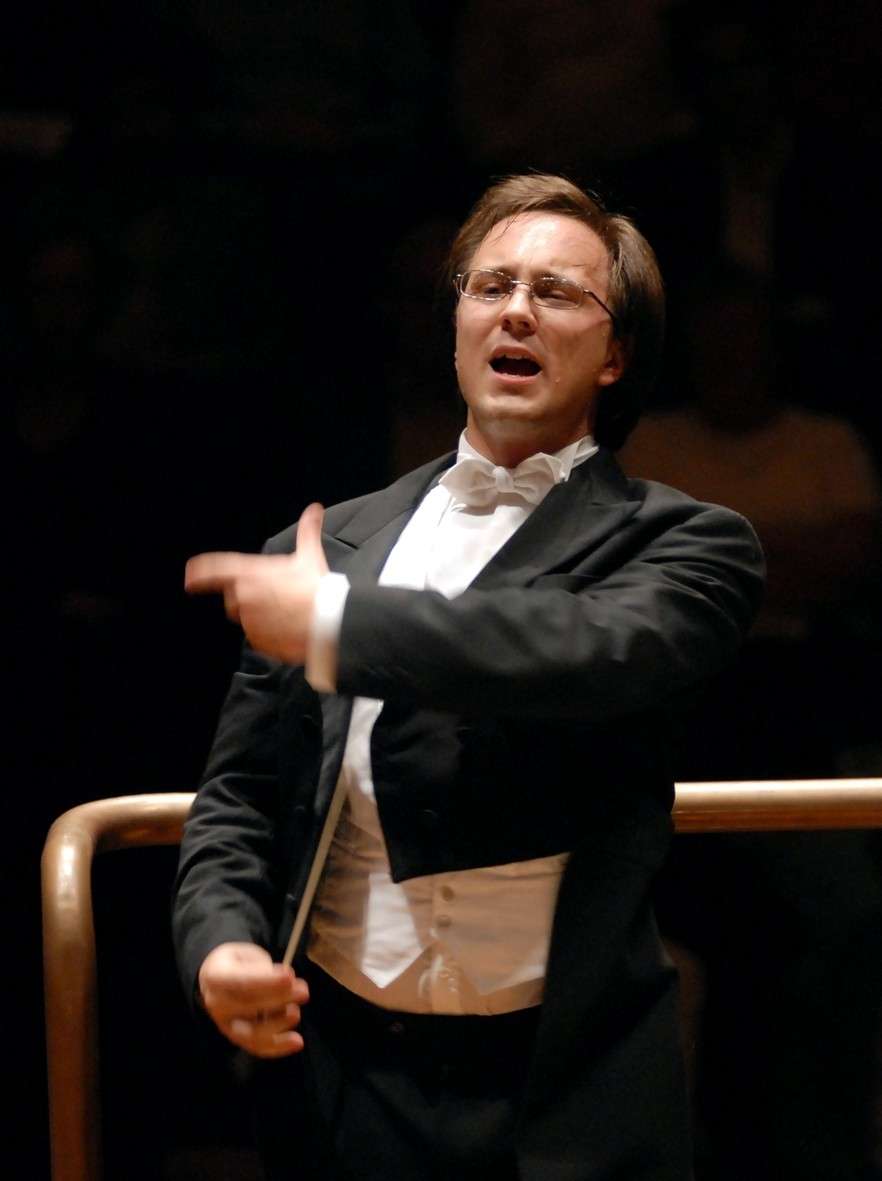|
Back
Seizing a chance Zurich
Tonhalle
11/19/2010 -
Arvo Pärt: Cantus in Memory of Benjamin Britten
Sergey Prokofiev: Romeo and Juliet, op. 64: Extracts from Ballet suites No. 1 and 2
Peter Tchaikovsky: Symphony No. 5, op. 64
Tonhalle-Orchester Zürich, Michal Dworzynski (conductor) 
M. Dworzynski (© Chris Christodoulou)
To be honest, I’m not sure if I was really looking forward to hearing Pärt’s Lamentate which was scheduled for the first part of this concert. Not having heard it before (it’s late Pärt), I carried out some pre-concert research which revealed varying opinions ranging between wonder at a new sense of dramatic power, and a dynamic scale and a compelling urgency of communication and a combination of utter boredom and lament. For a contemporary piece, it is also a long work at over 30 minutes. Anyhow, I will now have to wait for another day to make my own judgment as Gennady Rozhdesventsky, who was to conduct the concert, fell ill and the conductor and first-half programme had to be changed at very short notice: the programmes had already been printed. The bane of all Intendants. In stepped a young Polish conductor, barely 30, name unknown to most I suspect, Michal Dworzynski.
In place of Pärt’s Lamentate, we were given Pärt’s well-knownCantus in memory of Benjamin Britten for string orchestra and a bell which emerged in 1977 and is therefore an early work in Pärt’s development of what he himself terms his “tintinnabular” style. It makes for very easy and satisfying listening, given that it is, in effect, an essentially sombre work. It is a commendable only six minutes long. It has been described as profoundly beautiful, beautifully profound. The string section of the Tonhalle clearly enjoyed the intricacy of the work and it received a lucid and moving performance. Dworzynski and the string players managed to hold the long silence at the end to good dramatic effect.
Then a selection drawn from Prokofiev’s ballet Romeo and Juliet, some from his first ballet suite, some from the second. Dworzynski revelled in the loud dissonance of the opening chords and, later, employed a youthful swagger to good effect. Orchestra and audience visibly enjoyed Prokofiev’s witty invention and orchestration. "Tybalt’s death" had all the necessary vicious stabbings and menace. Only some rougher edges and tentative entries, not natural Tonhalle traits, pointed to the lack of rehearsal time.
In the Tchaikovsky, his Fifth Symphony I kept wondering how 85-year old Rozhdesventsky’s account would have differed from what we heard from this most promising youngster. He displayed faultless control of tempi and dynamics and the orchestra clearly tried hard to impress both him and the audience – and, by and large, they succeeded. There were fine solo contributions from horn, clarinet, bassoon. The Valse, in particular, had a delightful lilt. The final Allegro vivace was full-blooded and furious.
Already well known in Poland, Dworzynski won the Donatella Flick Conducting Competition in 2006 which brought with it assistant conductor status with the London Symphony Orchestra – now he is a regular with other British orchestras and championing Polish composers, not all of whom I must admit I have heard of.
Dworzynski had seized the chance to show his ability in front of a prestige orchestra and I am sure, and hope, we will all see and hear much more of him in future in concert halls around the globe.
John Rhodes
|